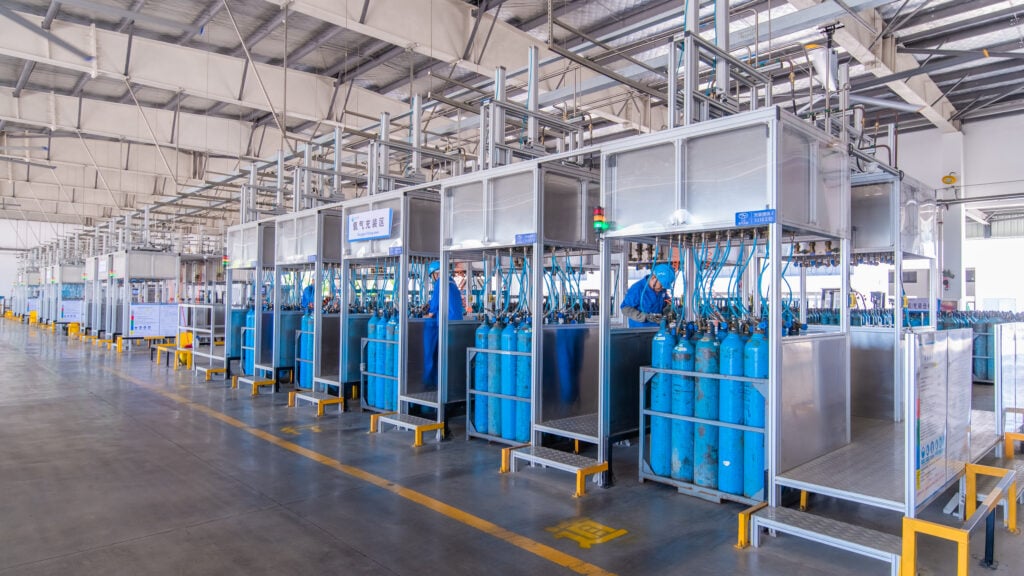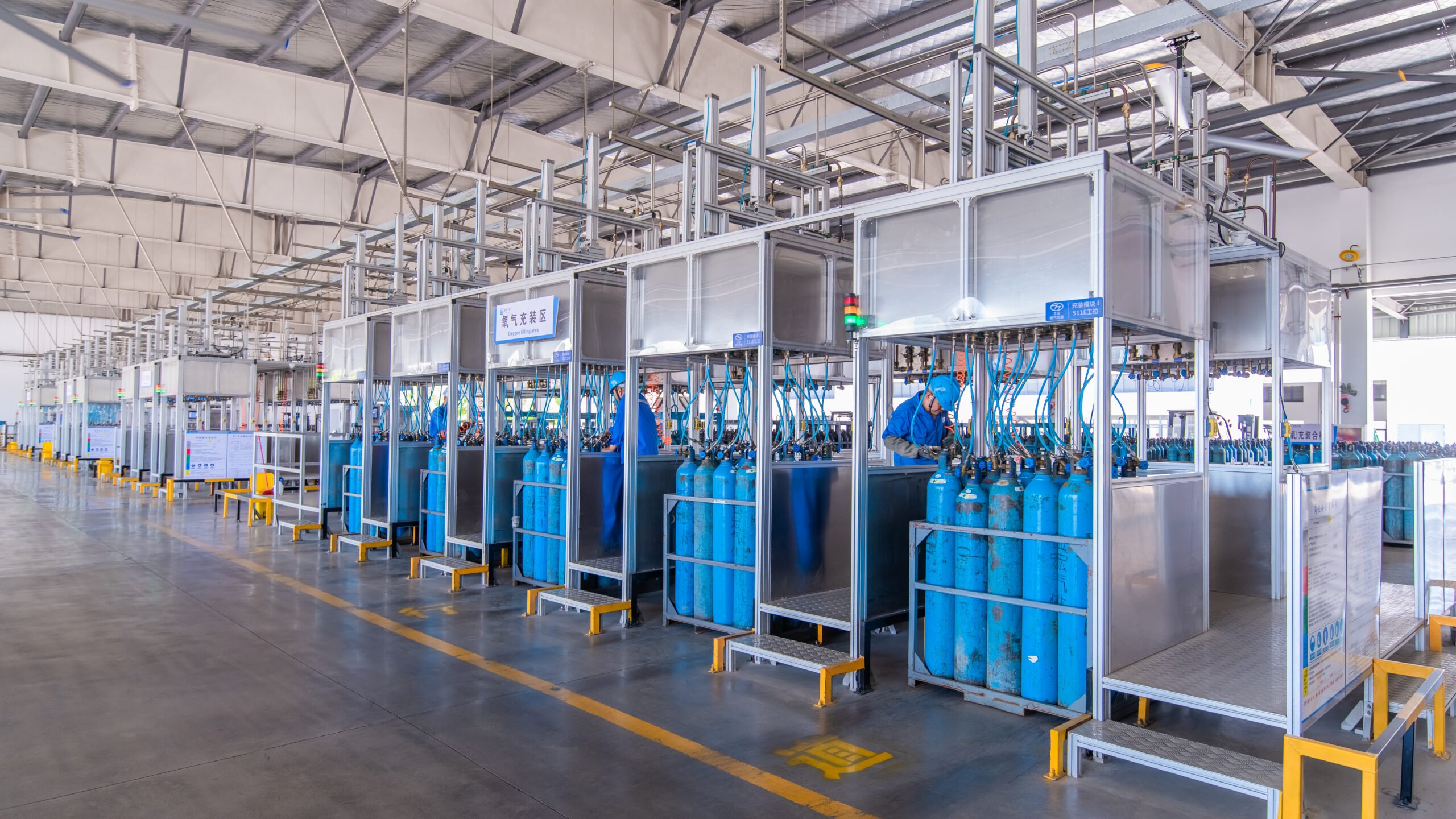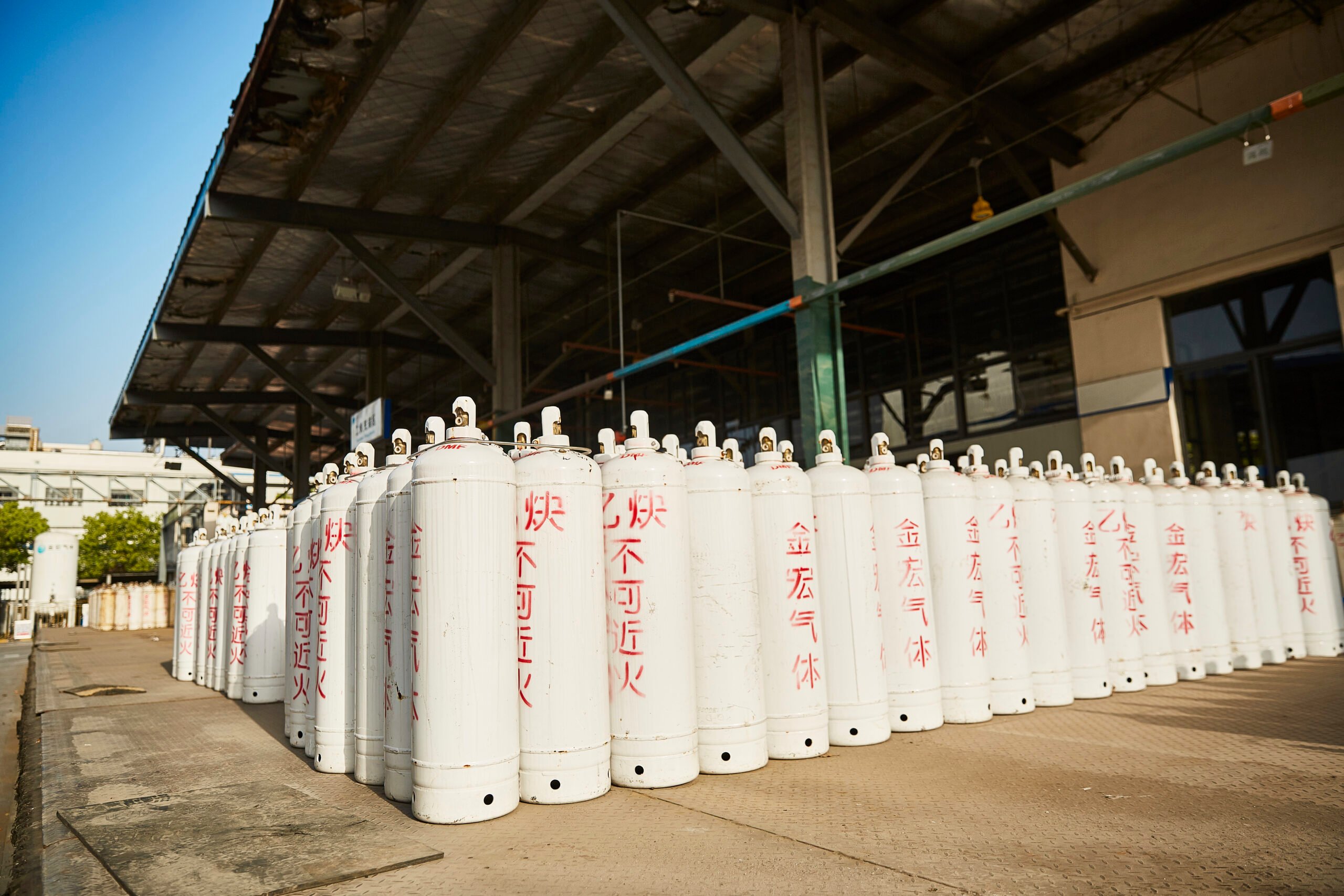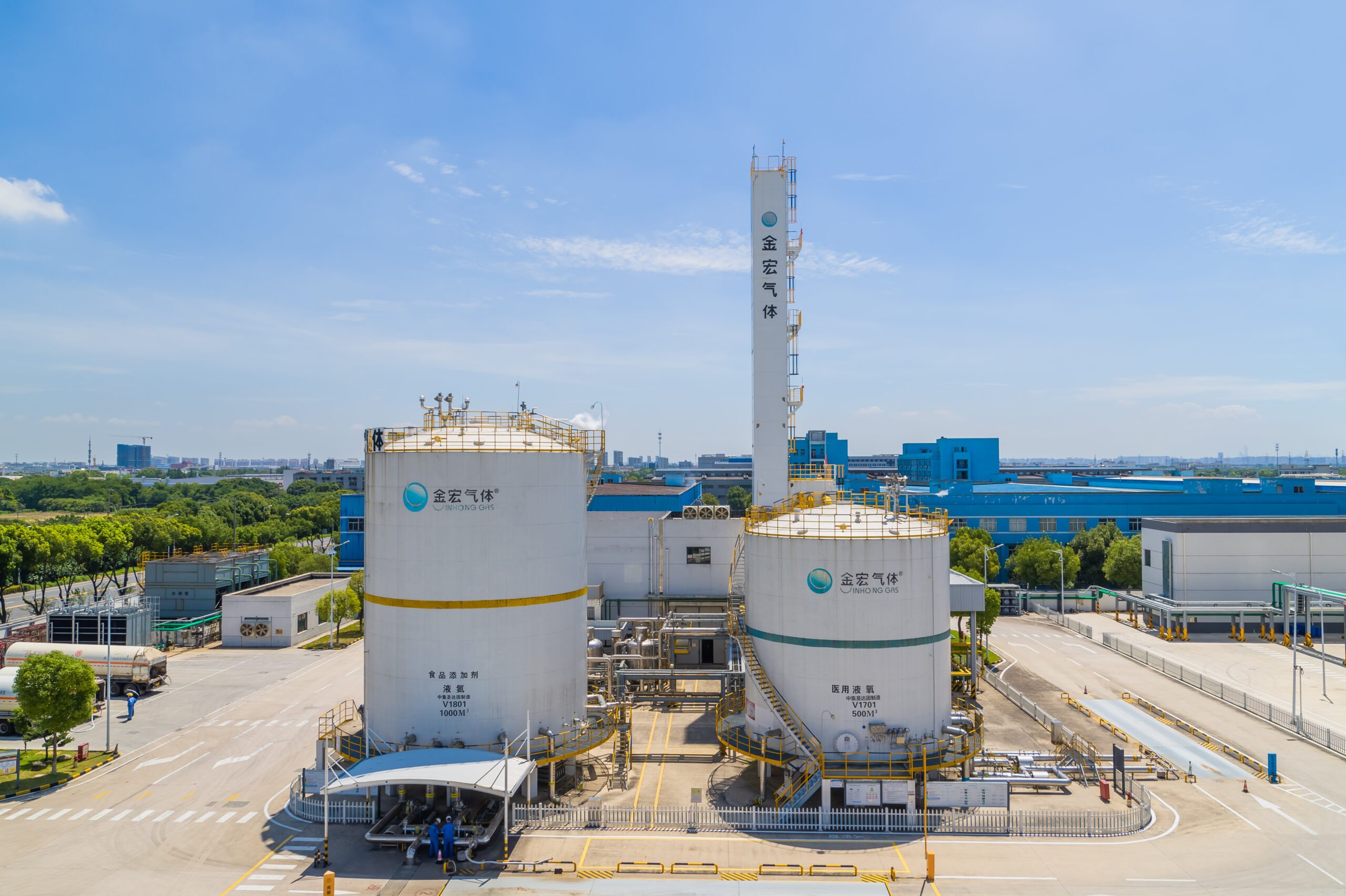Introduction
Acetylene and oxygen are essential gases in metal fabrication, cutting, and welding. Whether you’re a professional welder, hobbyist, or industrial technician, refilling your gas cylinders is an unavoidable part of the job. Choosing the right refill service not only affects your costs but also ensures safety and compliance with industry regulations. This guide covers everything you need to know about refilling acetylene and oxygen—where to go, how much it costs, critical safety tips, and the full process involved.

1. Where to Get Acetylene and Oxygen Refills
Refill services are available throughout the U.S., and your options may vary depending on location, cylinder size, and whether you own or lease the tanks. Common sources include:
- Industrial Gas Suppliers: Companies like Airgas, Linde (formerly Praxair), and Matheson Tri-Gas offer comprehensive refill and exchange services for both commercial and individual users.
- Welding Supply Stores: Local shops often provide competitive prices and personalized service, making them a good choice for regular users.
- Hardware Retailers: Some larger chains, such as Tractor Supply Co. or select Home Depot stores, may offer oxygen refills. However, due to acetylene’s volatility, it’s rarely handled by general retailers.
- Mobile Refill Services: In some areas, mobile providers can pick up and deliver cylinders, offering added convenience.
Finding a Provider: To locate services nearby, search for terms like “acetylene and oxygen refill near me” or “welding gas supplier near me” on Google or use supplier websites with store locators.
2. Acetylene and Oxygen Refill Cost Breakdown
Several factors affect refill pricing:
- Cylinder Size: Larger tanks generally cost less per cubic foot of gas.
- Ownership vs. Rental: Rented tanks often include refill or exchange fees in the rental agreement, whereas owned tanks are refilled individually.
- Regional Pricing: Costs can differ by region due to logistics and local regulations.
- Supplier Differences: Prices may vary even among suppliers in the same area.
- Refill vs. Exchange: Exchanges can sometimes be more affordable or faster than refills, depending on the supplier.
Estimated Prices (for reference only):
| Cylinder Size | Acetylene Refill | Oxygen Refill |
|---|---|---|
| 40 CF | $20–$35 | $15–$25 |
| 80 CF | $35–$60 | $20–$40 |
| 125 CF | $60–$90 | $30–$50 |
Note: These are approximate costs. Always confirm current pricing with your local supplier.
3. Refill vs. Exchange: Which Is Better?
You can either:
- Refill: Your own tank is refilled. Ideal if you own the tank and want to maintain it, though turnaround time may be longer.
- Exchange: Swap your empty tank for a full one. Quicker and more common for leased cylinders, but you’ll receive a different tank, possibly with signs of wear.
Pros and Cons:
- Refill
- ✅ Keep your own tank
- ❌ May take longer
- Exchange
- ✅ Fast and convenient
- ❌ Receive a different tank (possibly older or more worn)
4. The Refill or Exchange Process
Here’s what typically happens:
- Bring in Your Cylinder: Visit during business hours, or schedule a pickup if available.
- Inspection: The supplier checks for:
- Damage (dents, rust, bulges)
- Valve condition
- Hydrostatic test certification
- Correct labeling
- For acetylene: the condition of the porous filler
- Proceed with Refill or Exchange:
- Refill: Your tank is filled on-site or sent to a certified facility.
- Exchange: You receive a ready-to-use full cylinder.
- Labeling & Documentation: Gas type, purity, hazard info, and tare weight are labeled. You’ll receive a receipt or record of the transaction.
- Pickup or Delivery: Depending on the service, turnaround may be immediate (15–30 minutes for exchanges) or take 24–48 hours for refills.
5. Safety Guidelines for Acetylene and Oxygen Cylinders
Safety is critical when handling flammable and pressurized gases:
- Transport Upright and Securely: Cylinders must remain upright, strapped down, and ventilated during transport.
- Always Use Valve Caps: Protect valves during transport and storage.
- Store Separately: Never store oxygen and acetylene together. Keep at least 20 feet apart or separated by a fire-rated barrier.
- Avoid Heat and Direct Sunlight: Store in cool, dry, well-ventilated spaces away from ignition sources.
- Check for Leaks: Use soapy water on connections. Never use a flame.
- Use Proper Equipment: Ensure regulators, hoses, and torches are rated for the gas type and in good condition.
- Follow OSHA and NFPA Rules: Compliance with 29 CFR 1910, NFPA 51, and NFPA 55 is essential for legal and safe handling.
6. Can You Refill Cylinders at Home?
Absolutely not. Refilling acetylene or oxygen at home is extremely dangerous and illegal in most areas.
- Acetylene: Highly unstable under pressure. Requires special cylinders and precise industrial filling equipment. Mistakes can cause explosions.
- Oxygen: Supports combustion. Any contamination (like oil or grease) can trigger fire or explosion.
Regulations: DOT and local fire codes prohibit unauthorized cylinder filling. Only certified providers can legally perform this service.
Alternative for Small Jobs: For small, occasional projects, use disposable propane or oxygen cylinders available at hardware stores. These are single-use and safe for DIY purposes.
7. Top Suppliers for Gas Refills
Consider these reputable sources:
- Airgas: National network offering industrial gases, welding supplies, and equipment.
- Linde (formerly Praxair): Global supplier with a wide range of gas products and services.
- Matheson Tri-Gas: Provides reliable service across many regions.
- Local Welding Stores: Often offer better local pricing, personalized service, and faster turnaround times.
When choosing a supplier, compare:
- Prices (refill vs. exchange)
- Cylinder size availability
- Ownership or rental terms
- Proximity and delivery services
- Customer service and product range
Jinhong Gas: A publicly listed industrial gas company , Jinhong Gas offers comprehensive gas solutions across a wide range of industries including metal processing, electronics, healthcare, and environmental protection. With decades of experience and a strong technical foundation, Jinhong provides high-purity oxygen, acetylene, specialty gases, and customized gas supply systems. Their commitment to safety, innovation, and customer service makes them a trusted partner for enterprises across Asia and beyond.
Conclusion
Managing your acetylene and oxygen supply effectively is essential for any welding or metalworking operation. Understanding how the refill and exchange process works, comparing suppliers, and adhering to safety protocols helps you stay productive and safe.
Always work with certified providers, confirm costs ahead of time, and maintain your cylinders according to industry standards. Whether you’re a seasoned professional or just starting out, having a reliable gas supply process in place ensures smoother, safer operations—every time.



